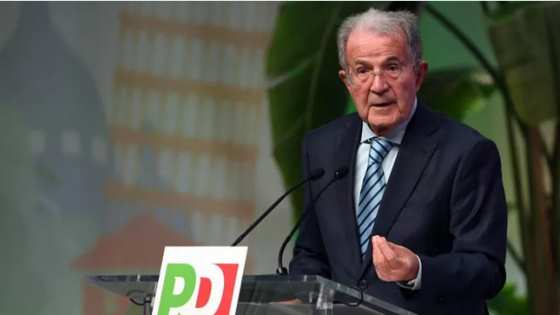Paginhttps://tirarelacqua.blogspot.com/2025/03/vogliono-la-guerra-per-scampare-dalla.htmle
YOU HARVEST WHAT YOU SEED: WHY DID YOU NOT RISE BEFORE THE INJECTION CAMPAIGN? IMMIGRATION? WATER.
 https://tirarelacqua.blogspot.com/2024/07/google-inculata-sangue-dal-piu-piccolo.html
https://tirarelacqua.blogspot.com/2024/07/google-inculata-sangue-dal-piu-piccolo.html
E' TUTTO INUTILE, TUTTE BALLE E TEMPO PERSO: AVREMMO DOVUTI UCCIDERLI TUTTI 4 ANNI FA, QUANDO HANNO "SALVATO" I NOSTRI CONTI CORRENTI.
Government Spending Millions on ‘Cognitive Vaccines’ to ‘Protect’ Public from ‘Fringe’ Viewpoints
by John-Michael Dumais | The DefenderThis question was the focal point of the “Council of the Canceled,” a discussion broadcast live on X (formerly Twitter) on Wednesday, hosted by Nicole Shanahan and featuring Dr. Jay Bhattacharya,Eric Weinstein, Ph.D., and Mike Benz.
The panel — experts who have faced censorship and de-platforming — delved into the complex web of government-funded research, corporate interests and institutional practices they allege are eroding public trust and stifling the debate that is indispensable to science and democracy.
“We’d like to restructure consensus-building so that … governance represents the people,” said Shanahan, a Silicon Valley tech entrepreneur and the vice-presidential running mate of Robert F. Kennedy Jr., Children’s Health Defense’s (CHD) chairman on leave.
The participants explored how this might be achieved in the face of what they described as coordinated efforts to control public opinion and suppress alternative viewpoints.
Benz, a former U.S. Department of State official and founder of Foundation for Freedom Online, discussed the concept of cognitive or psychological “vaccines” developed by academic institutions with government funding.
“They have glitzy 10-minute promo videos,” he said, describing attempts to create psychological inoculations against what authorities deem “fake news.”
The panelists agreed that these programs, far from protecting democracy, are undermining it by attempting to preemptively discredit dissenting voices.
Dissenting voices often labeled as fringe or dangerous
The panel painted a stark picture of eroding trust across multiple pillars of society: government, media, universities and scientific institutions. Each speaker shared experiences and insights illustrating how actions meant to build consensus have instead fostered skepticism and distrust.
Bhattacharya, a Stanford University professor of health policy, shared his experience of how institutional narrative control has undermined credibility in public health.
He pointed to the Great Barrington Declaration that he co-authored, which the Center for Science and Democracy labeled a “fringe idea” because it advocated for focused protection of vulnerable individuals during the COVID-19 pandemic.
The declaration was signed by 30,000 medical and public health scientists and practitioners and over 1 million others.
Benz pointed to the amendment of the Smith-Mundt Modernization Act of 2012, which lifted the ban against domestic dissemination of U.S. government-produced propaganda, giving rise to the censorship-industrial complex.
Weinstein, a mathematician, economist and founder of The Portal Group, described how academic institutions have become entangled with national security interests.
He shared an anecdote about the University of Chicago’s economics department, suggesting it was partially set up as a “bulwark against totalitarian communism, funded from inside the intelligence world.”
This intertwining of academia and national security, he argued, has led to a situation where dissenting voices are often labeled as fringe or dangerous.
“There’s this thing with an adjective, a profession, and then a proper name,” he said, giving the examples of “fringe epidemiologist Jay Bhattacharya” and “controversial professor Jordan Peterson” — labels meant to signal the public to be skeptical of or avoid such individuals.
The panel also discussed the erosion of trust in science, particularly in light of controversial research practices.
Bhattacharya brought up gain-of-function research. “Tony Fauci signed off on these experiments,” he said, mentioning that in a 2012 paper Fauci “explicitly wrote that even if these experiments result in a worldwide pandemic, it’ll be worth it because of the knowledge gained.”
The panelists also discussed how de-platforming, narrative control and censorship have contributed to a loss of faith in traditional media outlets that were once trusted to be objective and unbiased.
Google ‘censoring dissenting opinions while cashing out’
The panelists examined the complex interplay between government agencies, tech giants and academic institutions in controlling information flow.
Benz highlighted lesser-known government initiatives aimed at shaping public opinion, such as the National Science Foundation’s Convergence Accelerator Track F program — “Course Correct: Precision Guidance Against Misinformation” — and the Secure and Trustworthy Cyberspace Program.
“These programs distributed $100 million to this web of universities,” Benz explained, detailing how this research often focuses on developing strategies to counter narratives that challenge the institutional consensus.
Benz criticized the U.K.-developed Misinformation Susceptibility Test as “the most ridiculous, politically rigged” tool that could be used to justify increased censorship of certain groups.
Weinstein touched on lesser-known aspects of American history, particularly regarding information control and civil liberties.
“We don’t even know that there’s a secret history of the McCarran [Internal Security] Act,” he said, explaining that this act, passed in the 1950s, sought to apply tactics used during the Japanese American internment to a new perceived threat.
According to Weinstein, the act aimed to set up detention camps for suspected communists, mirroring what some in the national security establishment viewed as a successful strategy during World War II.
Shanahan pointed out potential conflicts of interest in how information is controlled on major social platforms. “Google is a major investor in vaccines. So they’re both censoring dissenting opinions while cashing out.”
Benz introduced the concept of a nongovernmental organization “soft-power swarm army” — a network of organizations and institutions working in concert with government agencies to shape public opinion.
He quoted a high-ranking official to illustrate the mindset behind these efforts. “You have this situation where hate speech gives rise to ethnocentrism, which gives rise to nationalism, which gives rise to opposition to the rules-based international world order.”
Those in power do not want the civilian class to speak freely online for fear of losing control of this order, according to Benz.
‘Cowboy culture is all about challenging each other’
Dissent is critical for maintaining healthy scientific discourse and democratic institutions, the panelists said.
Bhattacharya highlighted the historical importance of scientific dissent, citing the example of Frances Kelsey, M.D., Ph.D., a U.S. Food and Drug Administration (FDA) scientist who prevented the approval of the dangerous pregnancy drug thalidomide in the U.S.
“She worked for the FDA and … was just an honest scientist inside the FDA bureaucracy,” Bhattacharya explained.
Weinstein expanded on this theme, emphasizing the unique strength that dissent has historically given American institutions.
“How did the U.S. as a young country end up with the lion’s share of the world’s great research institutions?” he asked. “The short answer is ‘dissent.’ Cowboy culture … is all about challenging each other and going out for a drink afterwards.”
The need for a ‘whole-society freedom alliance’
The panelists offered several strategies to address the challenge of reforming public institutions.
Bhattacharya emphasized the importance of political engagement. “You can ask your … congressional candidates, ‘Where do you stand on free speech? Where do you stand on the censorship complex? Where do you stand on regulation of science?’”
Shanahan called for a restructuring of scientific publishing and peer review processes. “We are due for a new model of publishing and reviewing scientific literature.”
Weinstein suggested creating a glossary of terms to help the public understand the language used in national security and information control contexts. “We have to arm ourselves with the information, the terminology and the history.”
Benz advocated for a “whole-society freedom alliance” approach similar to what arose during the pandemic, including congressional committees, state attorneys general, private sector lawyers, alternative media and others who are “able to do their part.”
 https://tirarelacqua.blogspot.com/2024/07/google-inculata-sangue-dal-piu-piccolo.html
https://tirarelacqua.blogspot.com/2024/07/google-inculata-sangue-dal-piu-piccolo.html
GET USED TO IT, DEAR FILIPINO PEOPLE, AND TO BE ROUNDED UP BY THE AMERICANS IN THE PHILIPPINES FOR NEW COVID CONCENTRATION CAMPS: THE NEXT HIMARS IS FOR YOU, NOT FOR THE CHINESE
US, PH armies fire HIMARS in Nueva Ecija drill

The Philippine Army and the United States Army Pacific (USARPAC) conducted a live fire exercise on Friday using a High Mobility Artillery Rocket System (HIMARS) in Laur, Nueva Ecija.
In a statement, the Philippine Army said the activity at the Canantong Fire Base was part of the ongoing second phase of the Salaknib Exercise.
“Philippine Army's Artillery Regiment and Field Artillery personnel from the US Army's Multi-Domain Task Force worked closely together to maneuver, reload, and fire the HIMARS batteries,” the Philippine Army said.
“The HIMARS, a missile launcher mounted on a five-ton truck, is capable of firing six guided missiles in rapid succession,” it added.
Salaknib is a bilateral training exercise designed to enhance the interoperability and readiness of two armies, according to the Philippine Army.
In April, the Philippine Army and USARPAC started the first phase of Salaknib.
The participating troops included 1,800 soldiers from the Philippine Army’s 5th and 7th Infantry Divisions and Specialty Enabler units and 1,700 USARPAC soldiers from the 3rd Infantry Brigade Combat Team, 25th Infantry Division. — DVM, GMA Integrated News
This article US, PH armies fire HIMARS in Nueva Ecija drill was originally published in GMA News Online.
 https://tirarelacqua.blogspot.com/2024/07/google-inculata-sangue-dal-piu-piccolo.html
https://tirarelacqua.blogspot.com/2024/07/google-inculata-sangue-dal-piu-piccolo.html
L'ITALIA DEI MIGLIORI: MOLTO MEGLIO DI FIABILANDIA
Mancano le stecche: gamba ingessata con il cartone
Fare di necessità virtù. È questo, ormai da tempo, il modus operandi che orienta l’agire dei sanitari dell’ospedale Barone Romeo di Patti, spesso costretti ad arrangiarsi sia a causa della cronica carenza di personale medico che dell’insufficienza dei più basilari presidi medicali.
A destare stupore è il recente caso di un giovane di San Piero Patti, giunto in Pronto soccorso con una frattura al perone, a cui è stato immobilizzato l’arto con l’ausilio di alcuni cartoni a causa della mancanza di stecche per l’ingessatura. Legittimo il disappunto del padre del ragazzo; comprensibile il suo sfogo: «Chiedo al presidente Schifani, all’assessore alla Sanità e ai deputati regionali se si può uscire dal Pronto soccorso di Patti con un cartone al posto delle stecche. Preciso che i sanitari non c’entrano nulla, fanno solo sacrifici. Solo due medici di turno e da più di un mese mancano le stecche per stabilizzare gli arti. Mi piacerebbe tanto regalare al presidente o all’assessore il cartone con cui è stata steccata la gamba di mio figlio».
Sulla vicenda sono intervenuti sia il circolo pattese del Movimento Cristiano Lavoratori che Aretè (il comitato per la difesa e la salvaguardia del Barone Romeo di Patti). «Non possiamo che restare stupefatti dinanzi alle immagini del paziente a cui è stato immobilizzato un arto con l’utilizzo di alcune scatole di cartone. La vicenda – riferiscono il presidente e il segretario del circolo pattese del Mcl, Nunzio Saturno e Placido Salvo – ha dell’incredibile, ma purtroppo rispecchia in pieno lo stato di difficoltà organizzativa in cui versa l’ospedale Barone Romeo. La carenza degli ordinari presidi medicali è la prevedibile conseguenza dei gravissimi vuoti di organico, che costringono il personale medico e infermieristico a turni massacranti per occuparsi dei pazienti. Nonostante la stagione estiva comporti una crescita esponenziale dell’utenza sul territorio, il Pronto soccorso – proseguono Saturno e Salvo – continua ad essere sguarnito di ben sei unità rispetto alla previsione della pianta organica. Sollecitiamo ancora una volta la dirigenza dell’Asp di Messina a fare il proprio dovere, consentendo la normale operatività dei reparti attraverso l’assegnazione del personale necessario».
Schifani dispone un’ispezione
«Ho chiesto all’assessore alla Salute, Giovanna Volo, di avviare immediatamente una ispezione per risalire ai responsabili di questa incredibile vicenda, è inaccettabile. Chi ha sbagliato deve pagare», dice il presidente della Regione Renato Schifani. «Ho parlato col genitore del ragazzo, ho chiesto scusa a nome della Regione siciliana – dice -. Non ce l’ho con i medici, so bene che sono di frontiera e lavorano in condizioni a volte molto complicate. Ma sarò implacabile con i responsabili non appena avrò l’esito dell’ispezione che ho disposto».
https://messina.gds.it
 https://tirarelacqua.blogspot.com/2024/07/google-inculata-sangue-dal-piu-piccolo.html
https://tirarelacqua.blogspot.com/2024/07/google-inculata-sangue-dal-piu-piccolo.html
WILD BILL E' SEMPRE PREOCCUPATO DEI CONCORRENTI, SPECIE QUELLI INESISTENTI ... UNA VOLTA C'ERANO I RUSSI, ADESSO INVECE ... ALMENO SI SA DA DOVE VENGONO TUTTE LE BOIATE: DAL MAESTRO DELLA BOIATA.
Elezioni Usa 2024, Microsoft: Iran cerca di interferire facendo disinformazione
Rischi di interferenze da parte di gruppi iraniani pronti a fare disinformazione in vista delle presidenziali Usa: è l’allarme lanciato dal colosso informatico Microsoft
Secondo il colosso di Redmond si stanno intensificando i preparativi per interferire nelle elezioni presidenziali statunitensi di novembre. A riportare la notizia è la Cnn; “Questi gruppi – dice Microsoft – hanno gettato le basi per campagne di influenza su argomenti di attualità elettorale e hanno iniziato ad attuarle nel palese tentativo di generare controversie o influenzare gli elettori, soprattutto negli stati dove il voto è in bilico”. tgcom24.mediaset.it
 https://tirarelacqua.blogspot.com/2024/07/google-inculata-sangue-dal-piu-piccolo.html
https://tirarelacqua.blogspot.com/2024/07/google-inculata-sangue-dal-piu-piccolo.html
IL PROF STA PIU' MBARIEG DEL SOLITO
UE, Prodi: ‘esercito europeo e poi aumento delle spese militari’
“Credo di essere stato quello che di più ha insistito su politica estera comune ed esercito europeo”
SEGGIANO, 03 AGO – “Se continuiamo con l’unanimità non faremo nulla. Bisogna fare come con l’euro: chi ci sta, ci sta; chi non ci sta, non ci sta”. Lo ha detto Romano Prodi intervenendo ieri sera a ‘Notizie dall’Amiata, parole della contemporaneità, con i Marco Damilano e Veronica De Romanis. Superato lo scoglio dell’unanimità, per Prodi “il primo problema è quello fiscale”, difficile da risolvere: “Voglio vedere se l’Irlanda, il Lussemburgo, Cipro rinunciano al fatto che vivono prendendo le tasse di tutti gli altri.
L’Irlanda – ha spiegato – era il paese più povero d’Europa, ora ha il reddito pro capite più alto d’Europa dopo il Lussemburgo”. Solo successivamente, per Prodi, si potrà mettere mano alla difesa. “Credo di essere stato quello che di più ha insistito su politica estera comune ed esercito europeo. Ma se aumentiamo la spesa militare e non facciamo prima un esercito comune, buttiamo via i soldi. Sommando il bilancio della difesa dei 27 paesi europei arriviamo al bilancio militare della Cina, anzi un po’ di più, ma spargendolo così sono soldi buttati via”, ha indicato il professore.
E’ indispensabile un riequilibrio interno: “Pensate davvero che si fa un esercito europeo con la Germania che ha un bilancio che è due volte e mezzo quello francese e la Francia che dispone dell’arma nucleare e del diritto di veto nelle Nazioni unite, dunque uno che comanda e l’altro che paga?”, si è chiesto. (ANSA)
 https://tirarelacqua.blogspot.com/2024/07/google-inculata-sangue-dal-piu-piccolo.html
https://tirarelacqua.blogspot.com/2024/07/google-inculata-sangue-dal-piu-piccolo.html
Lettera aperta al signor Luigi di Maio, deputato del Popolo Italiano
IL SUCCO
- Home page
- MENTRE TRUMP E ZELENSKY FACEVANO SCENEGGIATE ... E LE SEGHE MENTALI AI MASS E AI SOCIAL MEDIA ... LO STATO MAGGIORE DELL'ESERCITO RUSSO PIANIN PIANINO ZITTI ZITTI QUATTI QUATTI CONTINUA AD AVANZARE ... UCRAINI SI ARRENDONO IN MASSA ... LE DIFESE UCRAINE SONO DI BURRO FUSO ... PUTIN? NON E' IL PUTTIN CHE COMANDA. E' LO STATO MAGGIORE DELL'ESERCITO RUSSO CHE COMANDA (E QUELLO CINESE): FA LA GUERRA E LA POLITICA DELLA GUERRA. IL PUTTIN GLI REGGE SOLO IL MOCCOLO. LA UE VERRA' SCONFITTA DALLA RUSSIA, MA LA RUSSIA NON VI LIBERERA', MEN CHE MAI LA CINA. LA MAGGIOR PARTE DELLE OPINIONI PUBBLICHE OCCIDENTALI, SPECIALMENTE QUELLA ITALIANA, SONO ORAMAI IRRIMEDIABILMENTE INFETTE DAL VIRUS DELL'IMPOTENZA MENTALE E DELL'INCAPACITA' DI AGIRE RAZIONALMENTE. IL COVID NON C'E' PIU', MA LA MAGGIOR PARTE DELLE PERSONE ANCORA SI COMPORTA COME SE CI FOSSE PUR DI NON DOVERE AFFRONTARE LA REALTA': DI ESSERE IN UNA GUERRA NON CONVENZIONALE DICHIARATA DALLE ELITES E DAI MILITARI ALLE POPOLAZIONI CIVILI INERMI IN TUTTO IL MONDO. NON SARANNO GLI ESERCITI RUSSI E CINESE (NORDCOREANO) A TOGLIERVELE, LO DOVETE FARE DA SOLI/E. DOVETE REIMPARARE A SPUTARE SANGUE. MAS RAPIDO. L' ALTERNATIVA E' L'ESTINZIONE. ALTRO CHE INTELLIGENZA ARTIFICIALE ...
Tirare l'acqua
- "Emergency does not create power. Emergency does not increase granted power or remove or diminish the restrictions imposed upon power granted or reserved. The Constitution was adopted in a period of grave emergency. Its grants of power to the Federal Government and its limitations of the power of the States were determined in the light of emergency, and they are not altered by emergency. What power was thus granted and what limitations were thus imposed are questions which have always been, and always will be, the subject of close examination under our constitutional system. While emergency does not create power, emergency may furnish the occasion for the exercise of power. "Although an emergency may not call into life a power which has never lived, nevertheless emergency may afford a reason for the exertion of a living power already enjoyed." Wilson v. New, 243 U. S. 332, 243 U. S. 348.
- Home page
- IL LIBERO STATO DEL POPOLO ITALIANO






